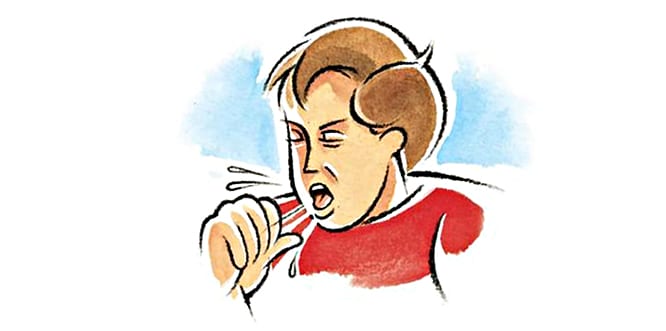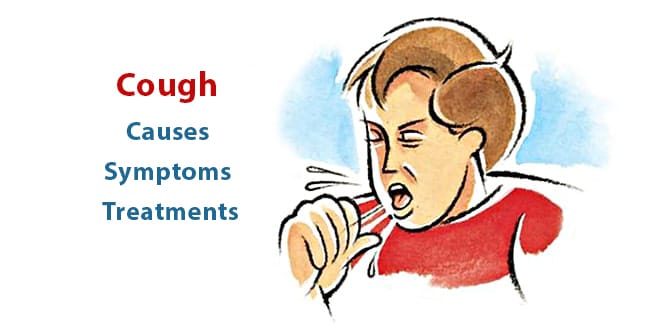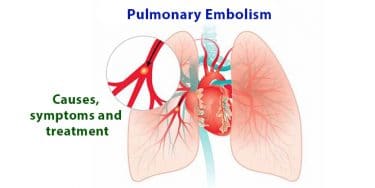Cough is one of the most important defense mechanism of the body, which protects the respiratory tract from infections and removes toxic substances and phlegm from the bronchi and the trachea. It can occur in the diseases of the lung, the heart, the digestive system and the nervous system, be the consequence of smoking or of the presence of foreign particles in the respiratory tract. Cough may be a symptom of significant diseases, so it should not be treated without consulting a doctor. First, the cause of the disease should be diagnosed and treated. Cough suppressants may be used in some diseases, because of the incapacitating nature of the cough attacks.
Table of Contents
What is cough?
Inhaled air enters the nose and passes through the throat, trachea, bronchi and eventually reaches the air sacs. Coughing happens to protect and clean these airways from foreign particles, mucus, secretions and harmful substances. It’s important to remember that coughing is a defense mechanism of body and that it is usually not a disease, but rather a symptom.
Healthy people can cough. Sometimes it can happen for simple reasons, but it also may be a precursor sign to an important disease. It is one of common reasons to go to hospital.
Causes of cough
Cough happens as a result of the outbreak of the air, after taking a quick breath, with the increase pressure inside lungs through chest and diaphragm muscles. It can occur either voluntarily or involuntarily.
Some of the conditions that cause cough
- Foreign particles in the airways or inhalation of irritants
- Diseases of the lung, heart, digestive system and nervous system
- Smoking
- Disposal of phlegm from airways

Diseases causing cough
- Nasal discharge
- Sinusitis
- Upper respiratory tract infections
- Foreign particles in the respiratory tract
- Pneumonia
- Asthma
- Chronic obstructive pulmonary disease (COPD)
- Tuberculosis
- Lung cancer
- Interstitial lung diseases: Diseases developed with lung hardening.
- Bronchiectasis: It is a lung disease that causes cough and phlegm due to widening of the bronchus due to infection.
- Pulmonary embolism (Clots in blood vessels of the lungs)
- Stomach reflux
- Heart failure
- Diseases of the rib cage
Factors that can exacerbate coughing
- Smoking: Due to smoking, the mucus-producing glands grow and cause more secretion in the airways, causing coughing or increasing the severity of existing cough.
- Allergen substances: Exposure to allergens such as pollen, house dust mites (invisible small beings) and domestic fungi may aggravate cough.
- Environmental factors: Dust, perfume odor, detergents, cold air and air pollution can trigger cough in some cases.
- Exercise: May trigger cough especially in asthmatic patients.
- Drugs: Drugs called ACE inhibitors, such as captopril, enalapril can cause coughing and increase the severity of it.
Flu, cold and cough
Influenza and flu are diseases of the upper respiratory tract caused by viruses (rhinovirus, influenza, etc.). Symptoms are sore throat, runny nose, sneezing, muscle pain, weaknesses, sometimes accompanied by fever. While muscle pain and fatigue are main symptoms of the flu, nasal discharge is prominent with the cold. Coughing occurs during influenza and cold because of nasal discharge, the urge of clearing the throat and inflammation.
The duration of cough usually does not exceed 3 weeks. These are the most common causes of short-term (acute) coughs.
Allergy, asthma and cough
Asthma is a chronic respiratory disease accompanied by recurrent cough, dyspnea and wheezing. These symptoms occur in the form of attacks, there are periods where no complaints are reported between attacks.
Cough is the only complaint of some asthma patients. Even though asthma cough is mostly dry, sometimes it may be accompanied by phlegm. Usually, asthma cough, which is more common in the morning, may increase in spring and fall.
If allergic asthma is present, allergen substances such as house dust mite, cockroaches, pollen, domestic fungi can trigger cough. If allergic rhinitis occurs, it may occur due to nasal discharge.
What diseases have coughing as a symptom?
- Upper respiratory tract infection: If it lasts less than 3 weeks
- Pneumonia, the attack period of COPD disease and heart failure: If short-term cough is accompanied by phlegm
- Tuberculosis: If it lasts longer than 2 months
- Lung cancer: If coughing is accompanied by difficulty in swallowing, blood in phlegm and weight loss
- Nasal discharge: If it starts as soon as lying down
- Left heart failure: It occurs after a few hours of lying down
- Asthma: If the cough starts early in the morning
- Stomach reflux: If there is any cough increasing after meals or lying down without phlegm
Types of cough
The duration of the coughing spells, the concomitant conditions, and the factors that increase and decrease the severity of the coughing attacks are very important in diagnosing the underlying disease. Coughs lasting less than 3 weeks are called acute (short term), coughs lasting 3 to 8 weeks are called subacute, and coughs lasting more than 8 weeks are called chronic cough.
Dry cough
Cough without phlegm is called dry cough. The most common causes are smoking, nasal discharge, gastric reflux, asthma and the usage of ACE inhibitor group drugs (captopril, ramipril).
Wet cough
It is a form of cough accompanied by phlegm. Healthy people may also have phlegm. However, an excessive amount of it is considered to be a wet cough. Cough accompanying phlegm may be the symptom for pneumonia, tuberculosis, COPD, and lung cancer.
Allergic cough
When people with allergic rhinitis and asthma are exposed to allergens, coughing is triggered and the severity increases. The most common allergen substances are domestic dust mites, mold fungi, cat and dog allergens, and pollen. The effects of the allergen substances vary from person to person. These allergens must be avoided for the treatment of cough. Continuous exposure may worsen the cough and lead to persistent symptoms.
Psychological cough
Psychological cough is typically in the form of sound that is similar to the bark sound caused by the urge of clearing the throat. The most important feature is that it is not observed while sleeping. If the cough is not accompanied by any other symptom, and after all the other possible causes of cough are excluded, then this diagnosis is given. It can be treated with psychotherapy.
Causes of cough in children
Healthy children can cough 10-15 times a day. In children, some diseases that cause cough are different comparing to adults. In children, cough due to hereditary diseases is more common. Coughs lasting more than 4 weeks are considered chronic in children, unlike adults. The most common cause of short-term coughs is upper respiratory tract infections caused by viruses.
If the accompanying symptoms of coughing are growth retardation, chest deformity, atypical facial appearance, etc., they may be an early sign of other diseases than infections. In addition, it should be kept in mind that foreign particles may have been lodged in the trachea. Persisting cough since the neonatal period may be caused by hereditary diseases such as cystic fibrosis or congenital airway structure disorders. A long-lasting and suffocating cough may be caused by pertussis infection.
Treatment of cough in children
The most important point in the treatment is not to start antibiotics for every child with short-term cough. Families may be anxious about this, but symptoms will generally be relieved within a maximum of 4 weeks. If there are any additional symptoms such as an increase in the frequency of breathing, fever and other complaints, you should visit the doctor. Besides children with asthma, bronchodilators given orally do not improve cough.
In children with allergic rhinitis, if there is a seasonal increase in coughing, steroid therapies given through nasals and anti-allergic drugs given orally may be beneficial during the pollen season. Since cough is a defense mechanism of the body, cough suppressants should not be used immediately, and reasons of cough should be investigated. In order to prevent cough in children, no medication should be used without consulting the doctor.
In order to prevent coughing caused by respiratory tract infections in children, all vaccines in the vaccination program should be done on time.
Cough in the elderly
There is a decrease in cough reflex in the elderly due to weakening of respiratory muscles and changes related to aging. Because the cough reflex decreases, the airways cannot be effectively cleaned from the microbes. In addition, since the cough reflex cannot work effectively, it is common that food and drink escape to the windpipe.
Therefore, respiratory infections such as pneumonia are more common and these infections are more severe. In elderly patients, lung cancer should be considered especially in case of long-term coughs.
Treatment of cough in the elderly
In the elderly, pneumonia and flu vaccines should also be made to prevent coughing from infections. Because of the frequent use of medications for the other diseases in the elderly, it should be cautious in terms of the side effects of the drugs used in the treatment of cough.
When should I go to the doctor for cough?
- If cough lasts more than 3 weeks and does not stop despite treatment
- If cough is accompanied by shortness of breath, bloody phlegm and chest pain
- If cough is accompanied by an unexpected weight loss, difficulty in swallowing, hoarseness and swelling in the neck, you should be consult a medical doctor.
Treatment of cough
Since coughing is not the disease per say but always a symptom of it, the underlying disease must be diagnosed before the treatment. Especially long-term coughing can be a sign of serious illness. Therefore, cough suppressant drug should not be used before the cause of cough is determined.
If the coughing spells deteriorate the quality of life, if the patient becomes tired and sleepless in severe conditions, the appropriate drugs can be used to alleviate the discomforts once the disease underlying the coughing is determined.
Medicine for coughs
The most common cause of acute coughing is nasal discharge caused by viruses due to upper respiratory tract infections. This condition can be dealt with complementary treatments, without consulting a doctor.
- Cough suppressants should not be used in patients with asthma and COPD. Respiratory cortisone drugs and bronchodilator drugs are used. In particular, stopping coughing in COPD patients may cause the disease to exacerbate.
- Gastric acid-suppressing drugs can be used in coughs connected to gastric reflux together with lifestyle and dietary changes.
- In the treatment of infections such as bacterial pneumonia, antibiotic treatment rather than a treatment with cough suppressants is advised.
- In case of coughs stemming from a specific treatment, that particular drug can be stopped and replaced with another treatment.
- Cough suppressing drugs can be divided into two groups as acting on the central mechanism (effective on the cough area in the brain) or peripheral mechanism (effective on cough centers in extra-brain regions).
Cough suppressant drugs working on the central mechanism
They stop the cough by increasing the stimulation threshold of the cough center in the brain, drugs such as codeine and dextromethorphan. Codeine is a morphine-derived drug. It may cause drowsiness, nausea, vomiting and constipation. Codeine can be used at 10-20 mg doses every 6 hours. Dextromethorphan should be used with caution in patients with liver disease. Addiction effect is lower compared to codeine.
Cough suppressant drugs working on the peripheral mechanism
They act by reducing the sensitivity of cough-sensitive areas in the airways. These are the family of drugs such as levodropropizine, benzonatate, diphenhydramine, and oxolamine. Benzonatate may cause dizziness, difficulty in swallowing.
Levodropropizine can also be used in children, because it does not cause undesirable effects in the nervous system, such as morphine-derived drugs. Diphenhydramine is present in many common cold medications. The most important side effect is sleep. Therefore drivers should pay attention when using it.
Palliative treatment for cough
Palliative treatment is the treatment that is used to relieve the patient but not to treat the disease.
- Decongestants: These are the drugs that narrow the veins. Ephedrine and pseudoephedrine can be considered to belong to this group. These drugs recommended in patients with cold, flu and allergic rhinitis can be used either by oral or direct injection into the nose. The usage of decongestant medications for more than 5 days may be inconvenient. It is not recommended for children under 1 year of age, pregnant women, breastfeeding and patients suffering from blood pressure disorder.
- Antihistamines: They can be used in patients with allergic rhinitis and cold. Drugs such as azelastine and loratadine are in this group.
- Local cortisones: These have anti-inflammation and allergy preventative effects. Budesonide and mometasone furoate are in this group. It may have side effects such as nasal crusting and mild bleeding.
Chronic cough treatment
One should be precautious as there may be significant diseases underlying the coughing. A doctor should be consulted. In diseases such as asthma, allergic substances that trigger cough should be avoided. In addition, smoking or being exposed to a smoking environment for a long time prevents coughing from getting better.
Cough may persist up to 4 weeks after quitting smoking, up to 4 weeks after stopping the use of ACE inhibitor drugs, up to 2-4 weeks for after upper respiratory tract infections, and up to 8-12 weeks after starting reflux therapy. Therefore, one should not worry when coughing resorption does not occur immediately after treatment is started.
In one study, cough suppression and vocal hygiene techniques performed in speech therapy programs, which were given in 4 sessions for 2 months, were found to be effective in reducing the severity of cough. These non-drug therapies called speech pathology treatment can be applied in patients with chronic cough problems.
Intervention in a coughing attack
In case of a foreign particle lodging itself in the respiratory tract, the person is encouraged to cough effectively to let the foreign particle out. If there is a complete blockage, the person cannot cough, the cough suddenly ceases. In these cases, an intervention from someone knowledgeable in first aid procedures may be necessary:
- First, the person is knocked vigorously 5 times between the two shoulder blades.
- If the particle does not come out, the Heimlich maneuver is applied: a hand punch is made, the two hands are joined together and the ribs at the back are pushed in and up 5 times. These maneuvers are performed alternately until the particle comes out. Obviously, this intervention should be practiced by someone with competence.
Coughs caused by diseases with phlegm such as COPD, bronchiectasis and pneumonia should not be suppressed. The body tries to expel phlegm and harmful substances from the body with the help of coughing. By interfering with the cough, the bacteria may be encouraged to proliferate excessively.
What is good for a coughing attacks?
- Drinking water: To prevent coughing attacks, drinking water without disturbing the trachea can ease the person. Water can reduce the cough by dissolving phlegm in the respiratory tract and get it discharged from the body.
- Warm shower: Taking a short warm shower is good for coughing attacks. Severe coughs may cause fainting and dizziness, so you should be careful.
Practical methods for relieving severe cough
- Frequently ventilate the environment in which you live.
- If the air in the room is dry, it may aggravate the cough.Therefore, moisten your home environment. During the winter, because radiators can dry the room, the use of an air humidifier is recommended.
- Keep the windows closed during pollen period. Minimize your exposure to pollen.
- Stay away from every situation that you feel can exacerbate your cough (smell of perfume, cigarette smoke, air pollution).
Herbal treatment for cough
Since cough may sometimes be a precursor of important diseases, you should always consult your doctor before attempting to stop coughing. Do not use any herbal medicine without consulting the doctor.
- Peppermint: Menthol, which gives the smell and taste of the mint, has a weak local anesthetic and a cooling effect on the skin surface. It relieves coughing by reducing irritation in the pharinx. Therefore, peppermint is added to the content of cough medicines. It can be used either by inhalation or by infusion. Add 3-4 drops of peppermint oil into 150 ml of hot water, and inhale the steam by breathing deeply.
- Honey: Honey when used in warm milk can be beneficial in dry cough and chest pain caused by persistent coughing. You can benefit from its painkiller effect if 1 teaspoon honey is consumed on an empty stomach. In a study, it was observed that feeding 2 teaspoons of honey to children older than 2 years before bedtime reduced coughing at night. However, honey should be avoided from children under 1 year of age.
- Ginger: You can consume a fresh ginger drink in a boiled water with lemon or honey 2-3 times a day. Fresh ginger can also be consumed raw.
- Pineapple: Due to the bromelain substance, pineapple fruit or water can suppress cough. It has a solvent effect on the phlegm. There are also supplemental pills containing only bromelain. However, these pills should not be used in children, when used in warm milk and adults who use antibiotics such as blood thinners or amoxicillin.
Tips for calming your cough
- Make sure you follow the treatment plan once the cause of the cough has been determined.
- Drink plenty of fluids. Water is the best phlegm remover.
- Moisten and ventilate the environment in which you live.
- Stay away from sick people.
- Wash your hands frequently.
- Stop smoking.
- If you have reflux, keep your head high while you sleep and do not eat anything before going to bed. For more: >>> Cough


